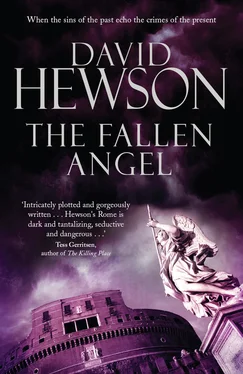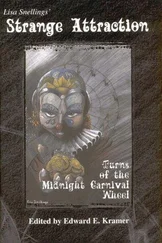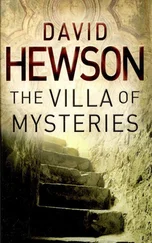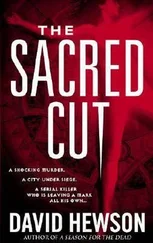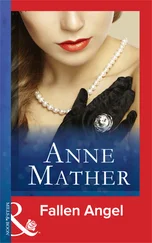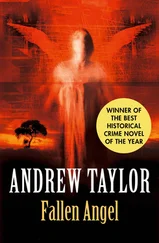David Hewson - The Fallen Angel
Здесь есть возможность читать онлайн «David Hewson - The Fallen Angel» весь текст электронной книги совершенно бесплатно (целиком полную версию без сокращений). В некоторых случаях можно слушать аудио, скачать через торрент в формате fb2 и присутствует краткое содержание. Жанр: Триллер, на английском языке. Описание произведения, (предисловие) а так же отзывы посетителей доступны на портале библиотеки ЛибКат.
- Название:The Fallen Angel
- Автор:
- Жанр:
- Год:неизвестен
- ISBN:нет данных
- Рейтинг книги:5 / 5. Голосов: 1
-
Избранное:Добавить в избранное
- Отзывы:
-
Ваша оценка:
- 100
- 1
- 2
- 3
- 4
- 5
The Fallen Angel: краткое содержание, описание и аннотация
Предлагаем к чтению аннотацию, описание, краткое содержание или предисловие (зависит от того, что написал сам автор книги «The Fallen Angel»). Если вы не нашли необходимую информацию о книге — напишите в комментариях, мы постараемся отыскать её.
The Fallen Angel — читать онлайн бесплатно полную книгу (весь текст) целиком
Ниже представлен текст книги, разбитый по страницам. Система сохранения места последней прочитанной страницы, позволяет с удобством читать онлайн бесплатно книгу «The Fallen Angel», без необходимости каждый раз заново искать на чём Вы остановились. Поставьте закладку, и сможете в любой момент перейти на страницу, на которой закончили чтение.
Интервал:
Закладка:
‘And the other pictures?’ Costa asked, indicating the ones of Mina Gabriel.
The photographer’s face wrinkled with disgust.
‘Please. There are standards, you know? This is different. Horrible, dirty stuff. No self-respecting photographer would get involved in something like that. It’s just plain grubby. The kind of thing kids take with their phones. Sexting, they call it. Yuk.’
Teresa put a finger on the earlier prints, the ones from the Hasselblad.
‘So you’re saying these are good?’ she asked.
‘Pretty good, yes. They’re well posed. They do the job. No face except the woman. No obvious identification. You’ve got all the frames?’
The pathologist glared at Di Capua and said, ‘Most. There was a little accident.’
‘Well, if he managed to shoot a roll of film without any obvious identification in there, he knew what he was doing. An amateur wouldn’t manage that. Even a good one. Of course, someone set up this guy for the first shot.’ He pointed at Malise Gabriel. ‘Then changed places for the rest.’
‘You mean this man,’ Costa pointed to Gabriel, ‘could have taken the rest of the pictures? Even if he didn’t know what he was doing?’
‘Fix a tripod and a monkey could use a camera. That kind of shot, it’s focus, lighting, frame. The real guy screwing the woman could just shout out when he wanted, I guess. Odd thing to do.’
He scratched his head.
‘You know the worst thing?’ He picked up the shots of Mina Gabriel. ‘Someone would pay money for these. Some creep somewhere. That’s the kind of world we live in.’
‘I suppose,’ Teresa said glumly.
‘That’s all I can tell you,’ the man added.
‘Not much, is it?’ Costa complained. ‘I hope we’re not paying you well.’
‘I do it as a public service,’ the paparazzo said. ‘Just a hundred euros will do.’
He held out his hand. No one took any notice.
‘Well?’ Costa asked Peroni.
‘Robert was adopted. The story about the kid who died? It’s all true. We found the inquest.’
‘It could still be Robert on those sheets,’ Teresa suggested. ‘Let’s wait for the DNA.’
‘We’ll have to, won’t we?’ Costa said. ‘At least we know Mina Gabriel told us the truth about him.’
‘Seems so,’ Teresa agreed.
Costa looked at Peroni. He was remembering the conversation with Mina at Montorio, the story about St Peter and a dead magician. Simon Magus. A story that came from her father.
‘Mina said she had an uncle in England,’ he said. ‘A banker. She thought he was called Simon. Didn’t get on with Malise. She’d never even met the man. See if you can track him down.’
Peroni’s face creased.
‘The police in London didn’t say anything about any relatives. I asked them if they’d been to see next of kin. You’d expect it in a violent death. They said there wasn’t any.’
‘Simon Gabriel,’ Costa repeated. ‘Go back to them. Ask.’
‘Will do.’
‘Anything else?’
Peroni looked at his notes and frowned.
‘The Ducati was bought from a dealer in London nine months ago. Reported stolen one month later. The Metropolitan police said there’d been a lot of thefts of fancy motorbikes recently. Some kind of ring operating.’
Costa wasn’t convinced.
‘A ring stealing Italian motorbikes and shipping them back here? Why?’
‘When it’s stolen,’ Di Capua said, ‘who knows where’s it’s going?’
‘Doesn’t work like that,’ Costa said. ‘Who did it belong to in the first place?’
‘Some. . Englishman. .’ Peroni stuttered, checking his pad. ‘Name of Julian Urquhart. Lived in Hampstead. No current address. He moved not long after he reported the bike stolen.’
Costa took fifty euros out of his wallet, gave it to the paparazzo, and said, ‘Thank you.’
‘Fifty?’ the photographer asked.
‘On an hourly rate you’re still beating any of us. Good day. Sir.’
He waited until the man had left.
‘Urquhart was Cecilia Gabriel’s maiden name,’ Costa told them. He looked at Peroni and asked, ‘Are you in the mood for coincidences?’
‘No,’ the big man said.
‘Good. Me neither.’
There were so many questions that should have been asked. A stray thought occurred to him: Falcone had allowed his own personality, his distaste for the idea that the girl had been abused by her own father, to intrude into this case. That mistake had coloured everything.
‘Forget about the DNA and the Ducati for the moment,’ Costa ordered. ‘The answers are in that family. Find out everything you can. Everything.’
He stopped. A memory came back to him. Mina Gabriel, pretty and distraught, pale-faced in the cafe near the Piazza Venezia, getting ready to play that haunting piece by Messiaen, one that brought tears to her eyes in the darkness as the organ of Aracoeli seemed to enfold her like a mechanical beast.
Before that happened she’d talked about herself and the Gabriels. Her father’s maternal grandmother was Italian. Their arrival in Rome was not entirely by chance.
‘Get someone who can work the births and deaths database,’ he added. ‘I want to know who these people really are.’
SIX
Falcone and Toni Grimaldi walked to the Casina delle Civette, talking amicably all the way. Their route crossed the centro storico , from the Piazza Navona through the busy open space of the Campo dei Fiori, where tourists and locals alike were wandering through the market stalls, onto the back lane where the Palazzetto Santacroce lay. The lawyer was pleasant company as usual, frank, intelligent, interesting, and always willing to offer an alternative point of view. It was men and women like these, Falcone felt, who made working life in the Questura tolerable. The two were of the same age, on the cusp of retirement. The lawyer spoke openly about the country cottage he’d bought in Puglia to restore. Grimaldi was sufficiently sensitive not to ask Falcone about his plans for life after the Questura. No one could imagine that eventuality, certainly not the man himself.
The press pack had gone, bored by the lack of opportunities. So they were able to walk into the place unhindered, and deal with the caretaker in his cabin, Grimaldi making flattering noises about the beautiful building, which was in truth more palazzo than palazzetto. Then Cecilia Gabriel came out to meet them and the three of them strolled beneath the courtyard arch into the garden with its palm trees, shady corners and gaudy beds of canna lilies.
She seemed a little more amenable than on the previous afternoon. The lawyer’s charm could be considerable, Falcone realized. The woman was, perhaps, easier when she was not in the presence of her daughter too.
‘Your home is so lovely, Signora Gabriel,’ Grimaldi declared, sweeping his hefty arm across the green space in front of them. ‘I’ve lived in Rome most of my life. I never imagined there was so much beauty hidden away in this grey corner by the river.’
He was smiling at her narrow, lined face. She wore a green shirt and dark slacks, more elegant than before.
‘I’m sure you gentlemen didn’t come here to talk about the garden,’ she said in good Italian. ‘This affair is growing very tiresome, Inspector. How many times do we have to have this argument?’
‘Never again,’ Falcone said. ‘At least I hope not.’
‘You mean you’re not here to arrest me? Or accuse us of some terrible crime?’
‘Signora Gabriel.’ There was an old wooden bench in the shade beneath a well-trimmed orange tree, its branches heavy with fruit. ‘Please. May we sit down and speak frankly? My colleague here is a lawyer, not a police officer, though he works for the Questura. However, this visit. . I would wish you to regard it as private. We’re not here on official duty, or official time even. Should nothing come of our discussions, no record will be made, no report written. I would like this dreadful affair to be brought to an end. Just as much as you.’
Читать дальшеИнтервал:
Закладка:
Похожие книги на «The Fallen Angel»
Представляем Вашему вниманию похожие книги на «The Fallen Angel» списком для выбора. Мы отобрали схожую по названию и смыслу литературу в надежде предоставить читателям больше вариантов отыскать новые, интересные, ещё непрочитанные произведения.
Обсуждение, отзывы о книге «The Fallen Angel» и просто собственные мнения читателей. Оставьте ваши комментарии, напишите, что Вы думаете о произведении, его смысле или главных героях. Укажите что конкретно понравилось, а что нет, и почему Вы так считаете.
